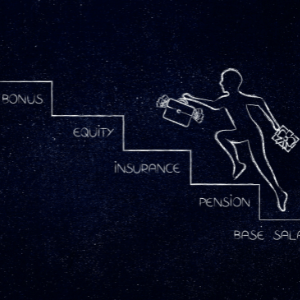In amongst the almost-daily turbulent news, there are important MTD (Making Tax Digital) changes coming from HMRC that it’s important landlords, sole traders and partnerships do not miss.
The changes are likely to impact the majority, so if this is you, or someone you know, please take a few minutes to read this update on MTD and quarterly returns, and the change of basis period.
Making Tax Digital (MTD) for income tax
You may know, HMRC have been introducing MTD for all VAT-registered businesses, which are now submitting VAT returns online through MTD-compliant software.
But now, the next phase of MTD is to submit quarterly returns for income and expenditure, whether VAT registered or not, and is effective from:
Sole traders and landlords 6 April 2024
General partnerships (not LLPs) 6 April 2025
From this date, if your total business or property income is more than £10,000, you’ll need to use MTD compatible software to:
- Keep records in a digital format
- Send quarterly updates of business income and expenses to HMRC
- Submit a final declaration
A new challenge for smaller businesses
It’s a significant change for smaller businesses, as, to date, the drive to move businesses onto digital accounting software has been focused on VAT-registered businesses, which are typically larger and more able to cope with the changes.
However, now, smaller businesses, whether VAT registered or not, will face the double whammy of not only having to get to grips with moving accounting records onto software, but also preparing quarterly figures good enough to submit to HMRC.
Software makes the change easier than you think
Luckily, whilst the changes can seem daunting, the advancement of software means it’s getting easier all the time. From linking to your bank account to import transactions, to a multitude of apps now available on the market, software developers are continually coming up with ways to save users time and make life easier.
And whilst HMRC are providing the ‘stick’, the benefits of up-to-date financial information can be seen by businesses as the ‘carrot’. Business challenges are coming from many angles, as is the pressure of rising costs, but being able to constantly monitor performance, via quarterly figures, can genuinely help you in managing your business.
Don’t put off taking the digital plunge
We would certainly advocate taking the digital plunge sooner rather than later to bring about the dual benefits of, not only, getting confident with the requirements well within the timescales, but having access to better business monitoring information.
Change of basis periods
As if the move to MTD was not enough! There is an additional measure, which will affect all self-employed sole traders and partnerships (including LLPs) who do not currently have a 31 March or 5 April year end. The change of basis period changes how profits are allocated to tax years and comes into effect from:
6 April 2023
Currently, business profits are declared on a tax return based on whichever year end is ending within a tax year. For example, if a business year end is 30 September 2022, the profits will ordinarily be entered onto the 2022/23 tax return.
However, for 2023/24 onwards, this is changing so that business profits are declared on tax returns based on the profits arising in the tax year, which runs from 6 April 2023 to 5 April 2024.
As a result of the change, the 2023/24 tax return must include all profits up to 5 April 2024, regardless of the accounting year end the business might be using.
For the transitional year, it means more than 12 months profit will be taxed in one tax year in order to ‘catch up’ to the 5 April 2024. Add into the mix that the extra months could perhaps cause an individual to breach a higher tax rate bracket and it’s easy to see how this could mean a resulting higher tax bill in that year.
In our example, the 2023/24 tax return will include the profits for the accounting year ended 30 September 2023, plus the 6 months October 2023 to March 2024, which is 18 months in total.
Consider changing your year end to 31 Mar or 5 Apr to make reporting easier
For future years, it may be best to permanently change a year end to 31 March or 5 April in order to make reporting easier.
Our business advisors can help – working on your behalf
There are a number of measures your Foxley Kingham business advisor will do on your behalf to help make the changes as painless as possible.
Overlap relief and spreading the tax
Depending upon how profits were taxed when you started trading there could be something called ‘overlap relief’ which can be claimed to help mitigate the impact of the extra profits. If the change is made when profits are naturally lower it could prevent higher tax brackets being breached. And if the changes in the transitional year result in unavoidably higher tax payments, there will be an option to spread the extra tax over, up to, five years.
We are here to support you
We will publish more information on the changes over the coming months, and monitor the profits of our clients to gauge when’s best to make the change. We will also be advising clients on their best course of action, so there will be plenty of time for them to prepare.
As software developers get busy updating their systems to cope with the changes, we want to assure our clients we are with you every step of the way. And, whether or not you are confident about moving to an electronic accounting package, Foxley Kingham are certified users of Xero and Sage, so we can provide licences or support you with any aspect of the changeover.
Our certified software team can provide all the training and support you need to get you started. All you need to do is call us on 01582 540800 and ask to speak to a member of our MTD team.










